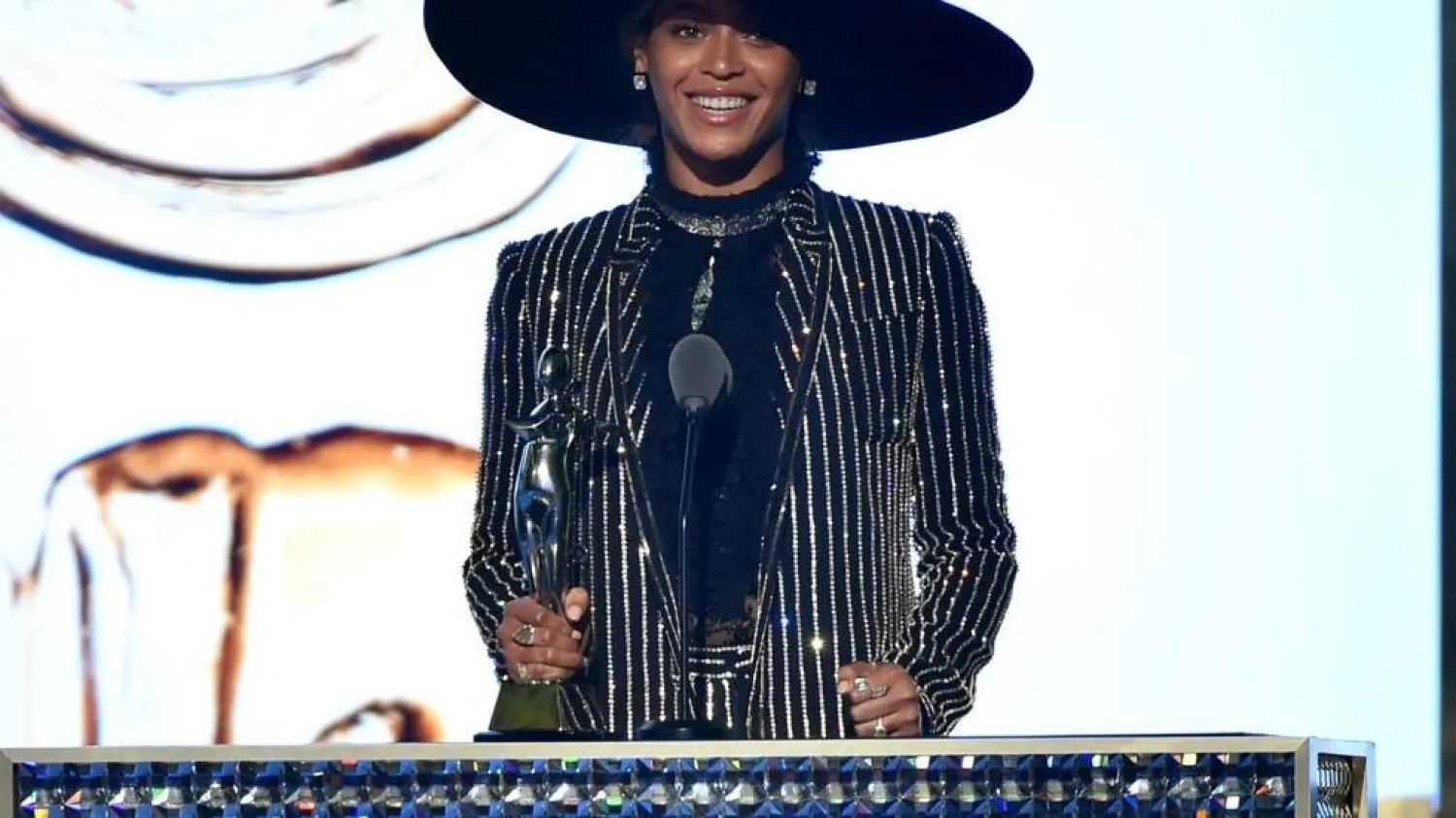Beyonce has been a showbiz fixture for nearly three decades, shapeshifting from girl group lead and pop empress to Hollywood actor and business mogul.
But for all the caps she's worn, the Houston-bred megastar's cowboy hat has stayed within reach: Queen Bey has always been country.
Now she's firmly entering her yeehaw era: "Cowboy Carter," the second act of her "Renaissance" project, is set to drop Friday at midnight (0400 GMT), AFP said.
From the vocal harmonies of Destiny's Child to the outlaw twang of 2016's "Daddy Lessons," Beyonce has long paid homage to her southern heritage, incorporating country influences into her music, style and visual art.
A Texan raised by a mother from Louisiana and father from Alabama, the singer -- who has repeatedly rewritten music's marketing playbook -- has made clear she will fully celebrate her roots on her new project.
She has already topped the charts with the first two singles off the album -- "Texas Hold 'Em" and "16 Carriages," dropped during February's Super Bowl.
Nevertheless, her popularity and influence -- she has more Grammy wins than any other artist in the business -- have brushed up against the overwhelmingly white, male gatekeepers of country music, who have long dictated the genre's boundaries.
She notably received racist comments after performing what was then her most country song to date, "Daddy Lessons," at the 2016 Country Music Association Awards alongside The Chicks.
But Bey is not backing down.
"The criticisms I faced when I first entered this genre forced me to propel past the limitations that were put on me," she said on Instagram recently.
"act ii is a result of challenging myself, and taking my time to bend and blend genres together to create this body of work."
Black artists have always been instrumental to the genre, but backlash is frequent.
Lil Nas X -- the overnight sensation whose infectious, record-breaking "Old Town Road" paired banjo twangs with thumping bass -- was scrapped from Billboard's country chart, triggering criticism he was dubbed hip-hop because he is Black.
"Whenever a Black artist puts out a country song, the judgment, comments, and opinions come thick and fast," the Grammy-winning Rhiannon Giddens, who features on "Texas Hold 'Em," wrote in a recent column in The Guardian.
"Let's stop pretending that the outrage surrounding this latest single is about anything other than people trying to protect their nostalgia for a pure ethnically white tradition that never was," Giddens said.
'Policing the borders'
For Charles Hughes, author of the book "Country Soul: Making Music and Making Race in the American South," Beyonce's country era is "claiming of part of her musical identity and part of her Houstonness."
And yet "Black and brown artists are required by a white-dominated music industry, and a white-dominated understanding of country music... to prove their bona fides," he said.
"It has nothing to do with the music they're making."
In the last 15 years in particular, Beyonce "has really embraced and engaged with her Texanness," Hughes told AFP. "Anybody paying attention can't be too surprised here."
"Yet it still provoked this huge reckoning, once again, where you had people saying, 'Oh, she can't be country,'" he said, describing the reaction as an old refrain in Nashville "used as a mechanism of policing the borders around the music."
Holly G, who founded the Black Opry to showcase Black artists in country three years ago, told AFP "country music fans typically like to think of themselves as traditionalists, which is a bit ironic because Black people invented country music."
"There's always that pushback when there's something new or something different coming into the space," she continued. "Unfortunately for them, she's much more powerful than they are."
In 2022 Beyonce released Act I of "Renaissance," a pulsating collection of club tracks rooted in disco history, which highlighted the Black, queer and working-class communities who molded electronic dance and house.
Hughes said she clearly made efforts to understand the history of that scene, and her choice of collaborators for Act II shows a similar sensibility.
And no matter how Nashville reacts to "Cowboy Carter," Beyonce has made it clear she'll have the last word.
"This ain't a Country album," she posted recently. "This is a 'Beyonce' album."
Beyonce Goes Cowboycore with New Album Heavy on Texas Roots

Beyonce is embracing her Texas roots with her new album, 'Cowboy Carter'. Theo Wargo / GETTY IMAGES NORTH AMERICA/AFP/File

Beyonce Goes Cowboycore with New Album Heavy on Texas Roots

Beyonce is embracing her Texas roots with her new album, 'Cowboy Carter'. Theo Wargo / GETTY IMAGES NORTH AMERICA/AFP/File
لم تشترك بعد
انشئ حساباً خاصاً بك لتحصل على أخبار مخصصة لك ولتتمتع بخاصية حفظ المقالات وتتلقى نشراتنا البريدية المتنوعة







